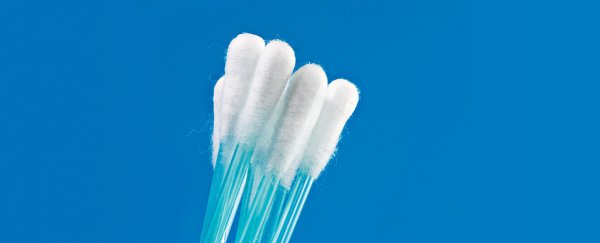If there's a race to clean up the world's oceans, the European Union wants to come first.
Leading the way on an issue with global implications, the European Comission (EC) has announced an ambitious new policy to crack down on the top 10 single-use plastics most commonly found on beaches.
The amount of plastic that humans use and then carelessly throw away is a mass so great it will leave you dumbfounded with your jaw on the table.
Every year, the world produces around 300 million tons of plastic, and every year, about 10 million tonnes of that plastic winds up in our oceans. Europe alone produces 25 million tonnes of plastic waste each year, and less than 30 percent of that is recycled.
"Plastic waste is undeniably a big issue and Europeans need to act together to tackle this problem," said Frans Timmermans, first vice-president of the EX.
"Today's proposals will reduce single-use plastics on our supermarket shelves through a range of measures."
If approved by the EU's member states, the new policy would severely restrict and at times even ban plastic products - including plastic cotton buds, cutlery, plates, straws, drink stirrers and balloon sticks - while also making sure to substitute the products with cleaner alternatives.
While plastic bottles are conspicuously missing from the list, the new policy will unroll a sweeping cleanup effort that aims to collect nearly all plastic bottles for recycling by 2025.
The new approach isn't being introduced to make people's lives more difficult. It also takes practicality into account.
Whatever the single-use plastic product may be, it will only be banned if an environmental alternative is readily available to the public and, of course, affordable.
"What this means in practice is that you won't see single-use plastic cotton buds on your supermarket shelves, but ones made with more environmental friendly materials instead," Timmermans told The New York Times.
"You can still organise a picnic, drink a cocktail and clean your ears, just like before," he said. (Although don't do that last one, please.)
"And you get the added bonus that when you do so, you can have a clear conscience about the environmental impact of your actions."
This isn't some distant environmental issue, a floating pile of garbage somewhere in the Pacific, miles from where it can affect you. Science has shown that microscopic fragments of these plastics are already on our dinner tables and in our lungs.
"We are at risk of choking our oceans in plastic, with a knock-on effect on our food chain and human health," Timmermans told The New York Times.
"It's in the air, it's in our oceans, it's in our food and also in our bodies."
Every year, the EU consumes 46 billion bottles, 36 billion straws, 16 billion coffee cups, 2 billion takeout containers and 580 billion cigarette butts, according to a 2017 report from Seas at Risk.
By taking the lead on this issue, the EU could avoid the equivalent of emitting 3.4 million tonnes of CO2, and it could avoid environmental damages that could cost as much as €22 billion (US$25 billion) by 2030.
The European Commission argues that the new measures will incentivise companies to explore greener alternatives, giving them a "competitive edge in the booming global marketplace for sustainable products."
Companies that produce plastic are not so sure. Plastics Europe said that while it supported the "overarching objective," it thinks that "plastic product bans are not the solution" and that "alternative products may not be more sustainable."
It makes sense why the plastic industry is wary of the new policy. Under the new measures, producers of plastic must bear the cost of waste management and clean up efforts, as well as raise awareness on the issue of single-use plastic pollution.
Companies will also be required to label their products, clearly detailing the negative environmental impacts and the presence of plastics in the product.
